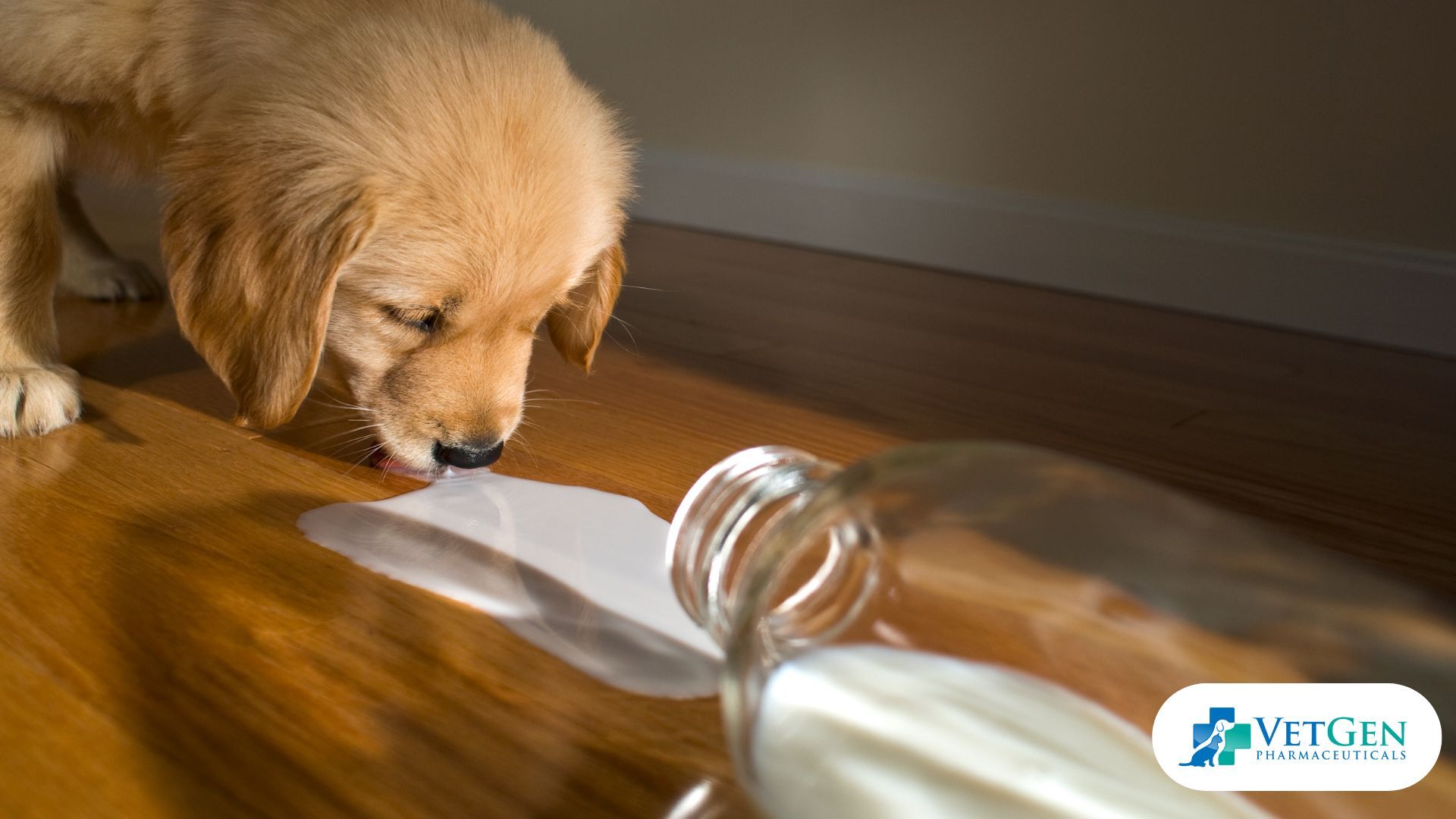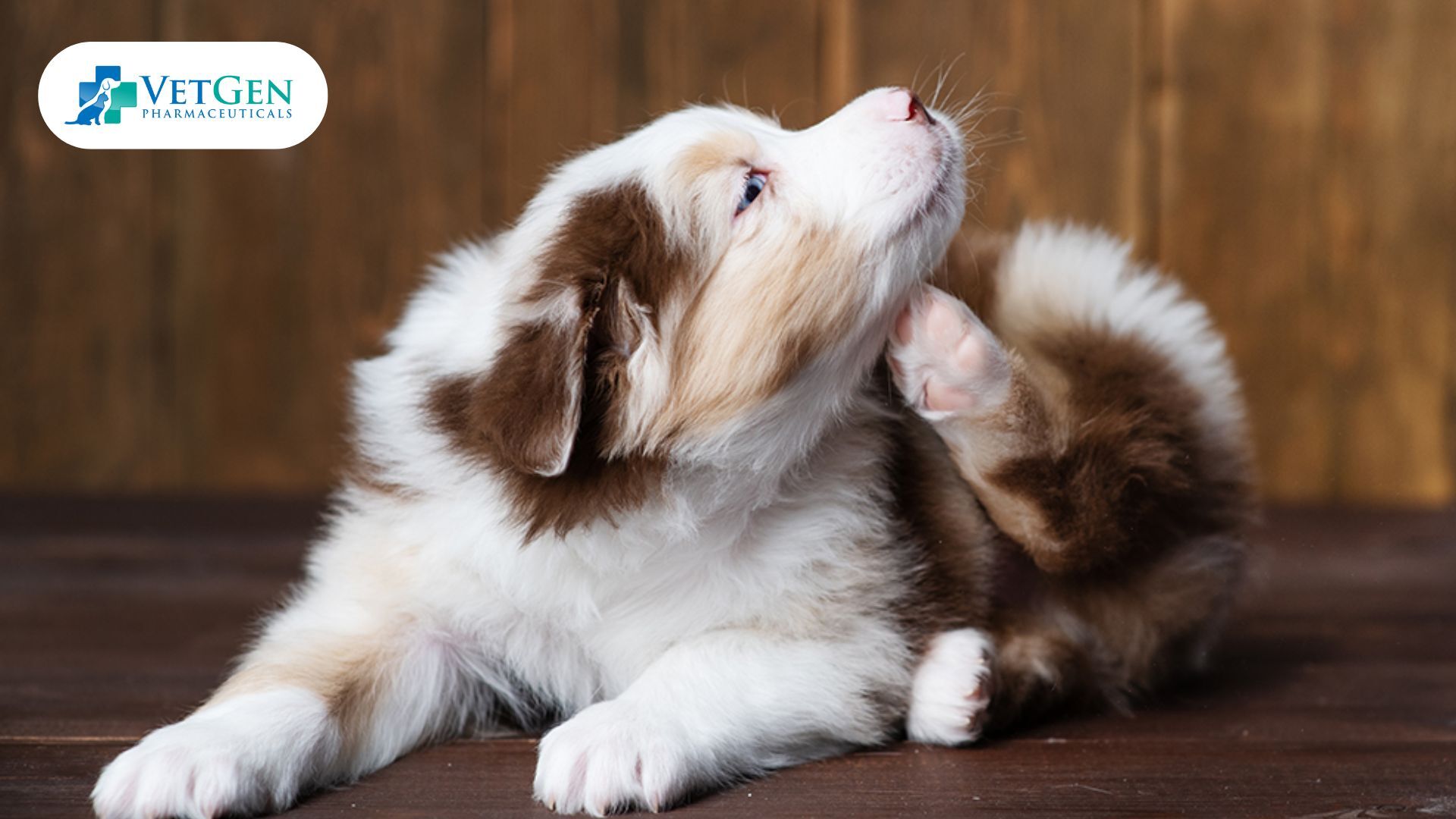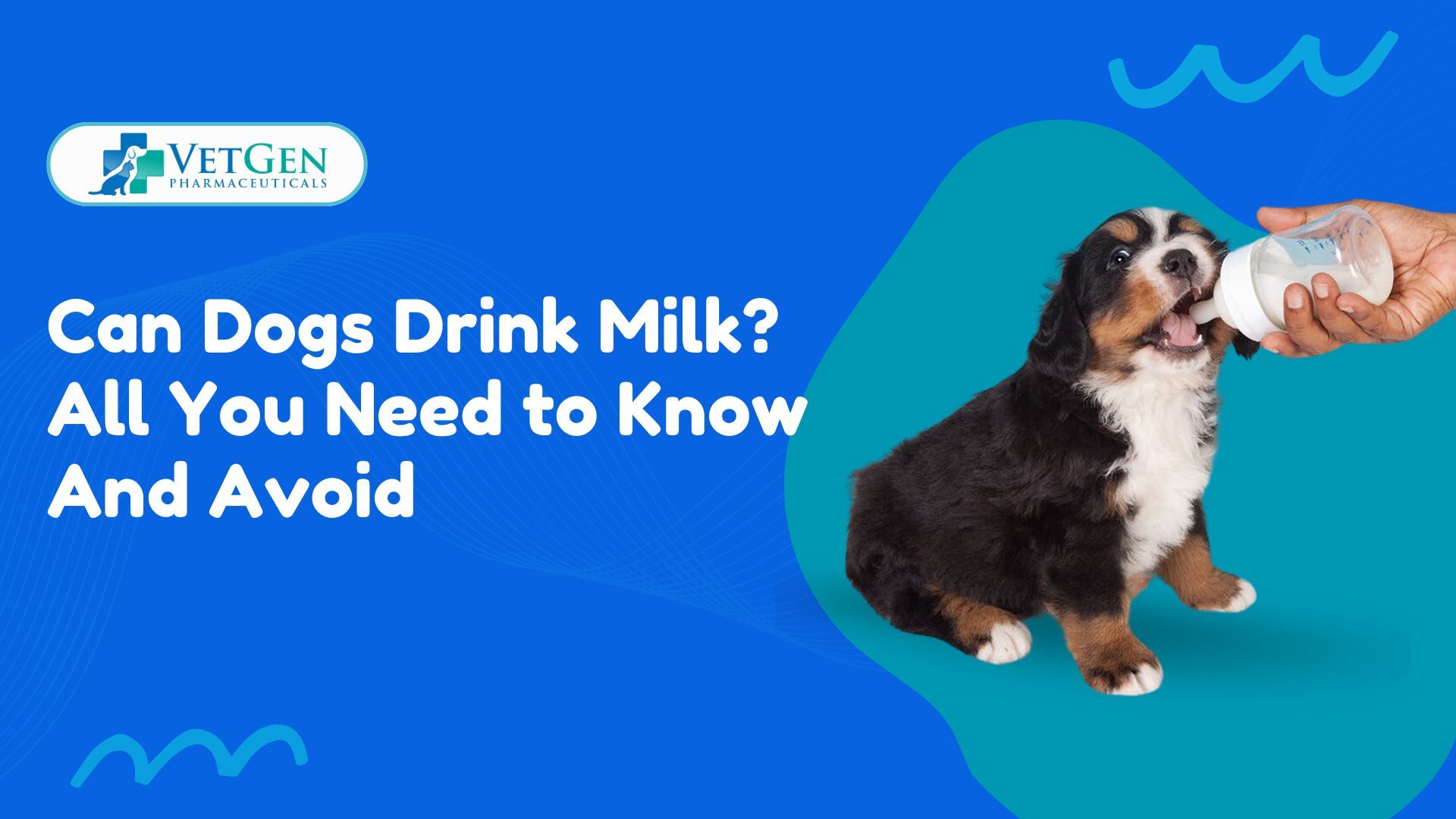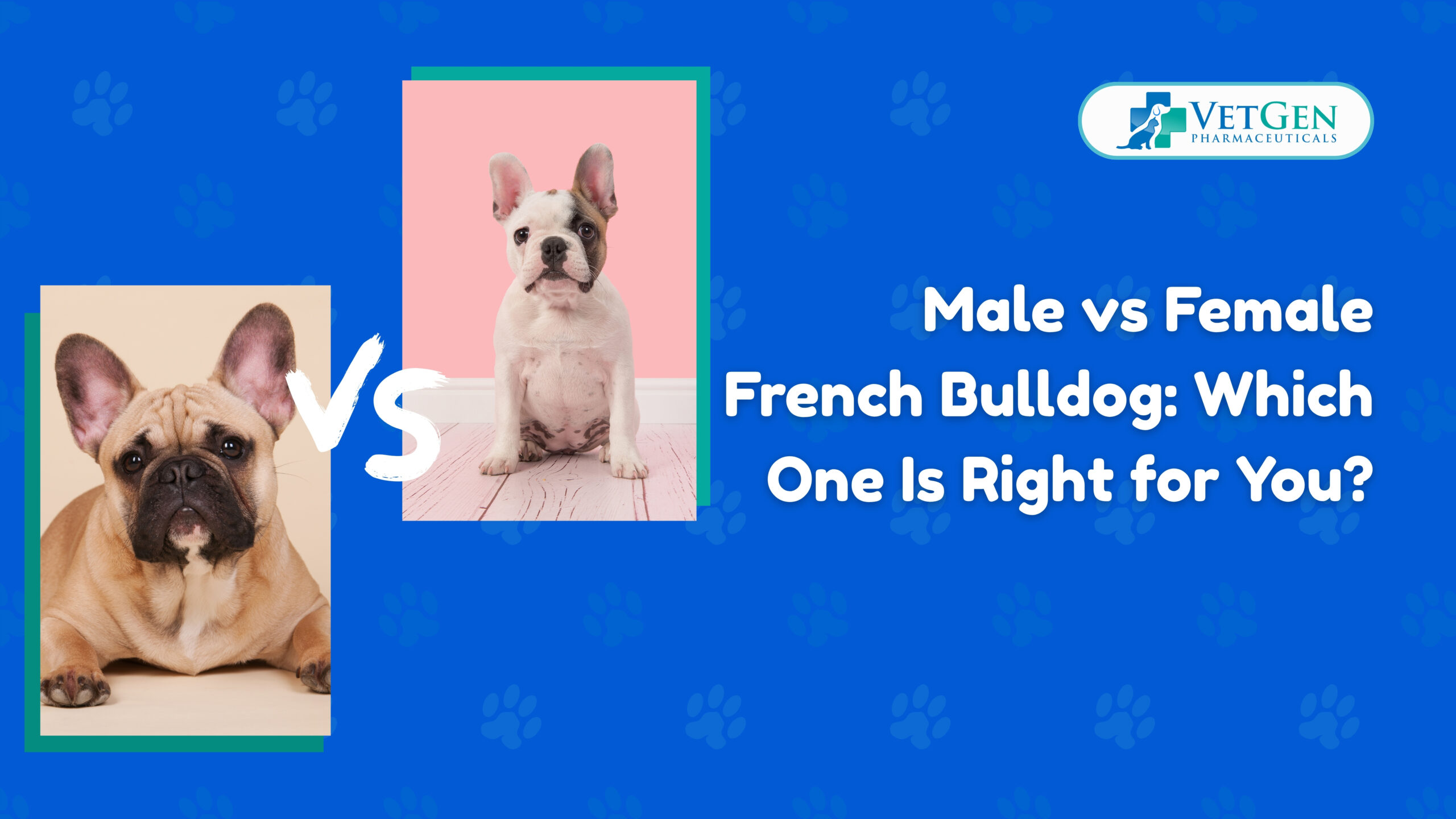When giving treats to your dog, you might consider sharing a bowl of milk, thinking it’s a nutritious and harmless choice. But is milk actually safe for dogs?
Many pet owners assume that since puppies drink their mother’s milk, all milk must be good for them. However, the reality is a bit more complicated.
Surprisingly, while some dogs can tolerate milk, others may experience digestive issues. So before pouring that bowl, you must understand:
- Can dogs drink milk safely?
- Potential benefits and risks of milk for dogs
- What types of milk to avoid
- Healthy alternatives to milk
Let’s get started!
Can Dogs Drink Milk?
Yes, dogs can drink milk, but with caution. Many dogs are lactose intolerant, meaning they can’t digest milk properly. This can lead to diarrhea, vomiting, or bloating.
Even if your dog isn’t lactose intolerant, milk is high in fat, which can contribute to obesity and pancreatitis. If you decide to offer milk, choose lactose-free options to reduce the risk of stomach issues.
Start with small amounts and observe your dog for any signs of discomfort. Always remember that milk should only be an occasional treat, not a regular part of their diet.

How Can Milk Harm Dogs?
Milk may seem like a harmless treat, but it can cause digestive and health issues in dogs. Many dogs lack lactase, the enzyme needed to break down lactose, leading to intolerance. A study published found that dairy consumption often results in gastrointestinal distress in dogs.
Lactose Intolerance
Most adult dogs are lactose intolerant, meaning they lack lactase, the enzyme needed to break down lactose in milk. Without it, milk remains undigested, leading to stomach issues. Even small amounts of milk can trigger discomfort, making it unsafe for many dogs. Drinking milk can cause:
High-Fat Content
Milk is naturally high in fat, which can be problematic for dogs. Excess fat consumption can lead to weight gain, obesity, and even pancreatitis—a painful and potentially life-threatening condition in dogs.
Dogs with sensitive stomachs or existing health issues are especially at risk. Low-fat or lactose-free alternatives are safer options.
Allergies
Some dogs develop allergies to dairy, leading to immune system reactions. If your dog shows these signs after consuming milk, it’s best to eliminate dairy from their diet and consult a veterinarian for guidance. Signs of an allergy include:
- Itchy skin
- Ear infections
- Swelling
Things to Consider While Providing Milk to Dogs
While small amounts of milk are generally safe for dogs that tolerate dairy, it’s important that you choose the right type of milk and watch for any adverse reactions.
Safe Dairy Alternatives for Dogs
If you want to offer dairy, consider these safer options:
- Lactose-free milk – Easier to digest than regular milk
- Plain, unsweetened yogurt – Contains probiotics that support gut health
- Cottage cheese (in moderation) – A lower-lactose option with protein and calcium
Important Tips to Keep in Mind
- Start with small amounts – Introduce dairy gradually and monitor for reactions
- Watch for signs of intolerance – Symptoms like diarrhea, gas, or vomiting indicate sensitivity
- Moderation is key – Even safe dairy options can cause stomach upset or weight gain if overfed
If your dog shows any discomfort after consuming dairy, stop immediately. Always prioritize fresh water and a balanced diet to keep your pup healthy.

What Types of Milk Should Be Avoided for Dogs?
Not all milk is safe for dogs. Some varieties contain harmful ingredients, high fat, or bacteria that can make your pet sick. It’s important to know which types to avoid to keep your dog healthy and prevent digestive or toxic reactions.
1. Whole Milk
Whole milk is high in fat and lactose. Many dogs cannot digest lactose properly, leading to diarrhea, bloating, and stomach discomfort. The high fat content also increases the risk of obesity and pancreatitis.
2. Flavored or Sweetened Milk
Chocolate, vanilla, and strawberry milk contain artificial sweeteners and sugars, which can be toxic. Some sweeteners, like xylitol, are extremely dangerous for dogs.
3. Plant-Based Milk
Almond, soy, and oat milk may contain additives that are harmful. Macadamia milk is especially toxic to dogs and should be avoided.
4. Raw Milk
Unpasteurized milk can carry bacteria like Salmonella and E. coli, increasing the risk of infections and foodborne illnesses.
Signs Your Dog Should Not Drink Milk
If your dog shows any of these symptoms after drinking milk, stop giving it immediately:
- Diarrhea – Loose stools indicate lactose intolerance or digestive upset.
- Vomiting – A sign that your dog’s stomach can’t handle milk.
- Excessive gas – Bloating and discomfort may follow milk consumption.
- Itching or redness – Possible allergic reaction to dairy.
A study published found that 50% of adult dogs have some degree of lactose intolerance. Always monitor your pet’s reaction to dairy.

Healthy Treat Alternatives
If your dog shows any of these symptoms after drinking milk, stop giving it immediately:
- Diarrhea – Loose stools indicate lactose intolerance or digestive upset.
- Vomiting – A sign that your dog’s stomach can’t handle milk.
- Excessive gas – Bloating and discomfort may follow milk consumption.
- Itching or redness – Possible allergic reaction to dairy.
A study published found that 50% of adult dogs have some degree of lactose intolerance. Always monitor your pet’s reaction to dairy.
Conclusion
Milk is not the best treat for dogs. Some tolerate it, but many experience digestive problems. If you want to offer dairy, choose lactose-free options in moderation. Always prioritize your dog’s health and well-being.
At VetGen, we care about your pet’s nutrition and health. Visit VetGen Pharmaceuticals to learn more!
Frequently Asked Questions
Can puppies drink milk?
Puppies rely on their mother’s milk. After weaning, they should drink water and dog-formulated food. Cow’s milk can upset their stomachs.
Can dogs drink goat’s milk?
Goat’s milk has less lactose than cow’s milk. Some dogs tolerate it better, but introduce it slowly.
How much milk can a dog have?
A small amount occasionally is fine for dogs that tolerate it. Avoid making it a regular part of their diet. Generally, a few teaspoons to a tablespoon is enough for small dogs, while larger dogs can have a bit more. Always monitor for any adverse reactions after giving milk.
What should I do if my dog drinks too much milk?
Watch for symptoms like diarrhea or vomiting. Provide plenty of water and call your vet if symptoms persist.






